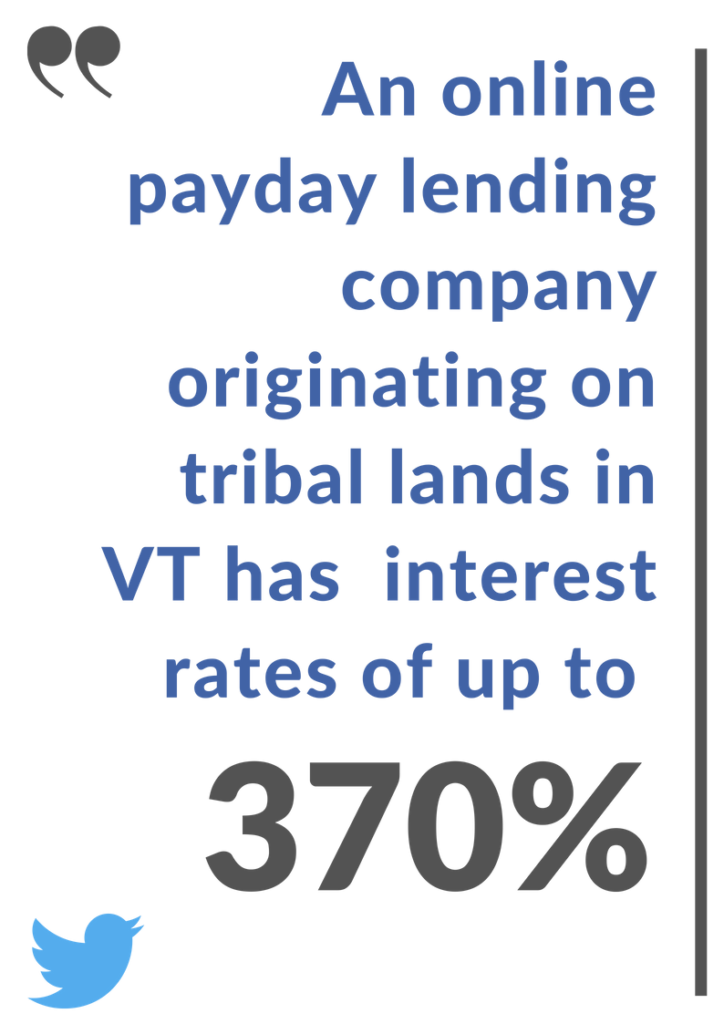
CHN supporters share their payday lending stories
Tamara Fettes of Rice Lake, Wisconsin has her own payday lending story to share.
Years ago, her husband lost his job when the company he worked for moved to Brazil. At about the same time, the couple took in two grandchildren who had been placed in foster care. Tamara still worked full-time, but the family was living a paycheck-to-paycheck existence and decided to take out a second mortgage on their home in order to try to provide for their grandchildren.
“After the job loss, my husband became desperate to save our house from foreclosure and turned to payday loans against his unemployment checks,” Tamara says. “He fell into a very vicious cycle and despite the loans, we lost the house when we were unable to pay back the lenders. My husband ended up declaring bankruptcy, and we have never been able to own another home since then, and it’s been nearly 14 years. We struggled for years to raise our grandchildren. My husband went back to school and eventually went back to work after graduating from tech school. However, he has never really recovered from the losses of our home and his ability to provide for us.”

Tamara is one of 1,078 CHN supporters from all 50 states plus Washington, D.C. who have submitted comments in opposition to an effort by the Trump Administration to roll back an Obama-era rule that would protect consumers from predatory payday and car title lenders. The Trump Administration’s proposed rule is currently in its public comment period, which means anyone and everyone can submit comments. CHN and many of our allies are working to generate comments opposing the rollback, and you can voice your opposition here. In addition, CHN will host a webinar this Thursday at 2 p.m. ET to learn more about this issue. You can register here.
Many of the CHN supporters who have left comments have not been harmed directly by the payday lending industry, but have seen the destruction left in their communities by unscrupulous lenders. These CHN supporters include lawyers, teachers, nonprofit workers, and clergy.
And they include Pam Freshney of St. Francisville, Louisiana, a struggling town of fewer than 2,000 people that sits upon a narrow ridge overlooking the Mississippi River.
Pam reports that her husband’s partner in a construction company was a victim of payday lending. He and his family were living in a trailer while trying to build a house they could call their own.
“Of necessity, they got a ‘cheap’ loan,” Pam recalls. “According to his wife, things got scary real fast and stayed that way for about ten years as they tried desperately to get ahead of this ballooning debt. They finally did (thanks to a timely small inheritance), the kids grew up, the house got built, he got some help, but that bitter lesson learned from experience does not get learned by desperate citizens when these companies are permitted to lie, change contracts midway and take advantage of legal loopholes to keep folks in debt and despair for the rest of their lives.”
Pam says the government has a role to play when it comes to protecting her neighbors.
“Most of us are not lawyers or accountants and do not have the education, time or resources to investigate, evaluate or legally vet a loan company when we are working as hard as possible just to get by,” she says. “We always assumed the government’s job was to protect the citizens from predators and manipulative financial practices. I guess we were naive to think that. As an older American I feel the need daily to apologize to the rising generation for our assumption and faith in the U.S. government now.”
The Consumer Financial Protection Bureau (CFPB) was established in the wake of the 2008 Great Recession as part of the Dodd-Frank Act. It was tasked with helping consumers “make informed and responsible decisions about financial transactions” and protecting consumers “from unfair, deceptive, or abusive acts and practices and from discrimination.”

Its job is not just to protect consumers from predatory payday lending practices, but from all sorts of financial shenanigans – unscrupulous debt collectors, questionable mortgages and student loans, and from racial and other illegal forms of discrimination.
But as a study recently revealed, the CFPB’s enforcement mechanisms have been significantly scaled back under the Trump Administration. The effort to halt consumer protections in the area of payday and car title lending is just one important piece of this. That’s why it’s important for you to submit a comment in opposition to this effort by the May 15 deadline.
One more thing: we often remind people that one of the points of public comments is to provide information that can help in lawsuits against the Trump Administration’s attempts to eviscerate protections for low-income people. Comments have had that effect in court rulings against the Administration’s approval of work reporting rules that have denied Medicaid to thousands of people. Litigation may overturn some of the efforts to gut consumer protections too. Last week, a federal appeals court ruled against an online payday lending company originating on tribal lands but seeking business in many states, with interest rates of up to 370 percent. Your comments can help to bolster arguments employed in other court cases.

